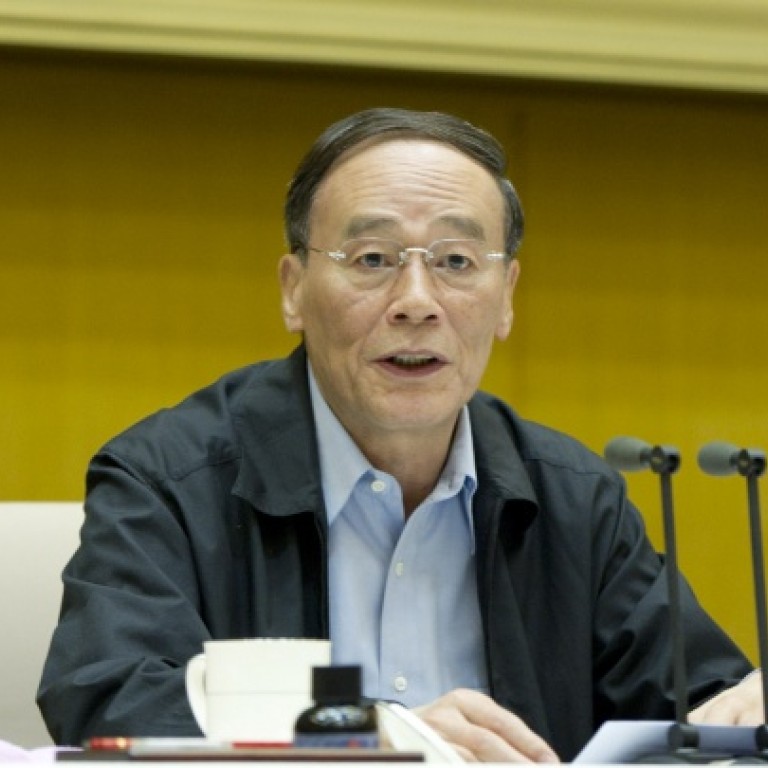
To root out corruption, China must institute checks on government power
Hu Shuli applauds the latest measure to crack down on club membership, and urges a fundamental restructure that allows oversight of authority
China's anti-corruption campaign has moved up a gear. The Central Commission for Discipline Inspection last week ordered disciplinary officials to give up, by June 20, all club membership cards they had received as gifts. This zero-tolerance policy deserves praise.
Since the introduction of the government's "eight rules" and "six prohibitions" to rein in official excesses, many corrupt cadres have been sacked, while others have noticeably toned down their excesses. But many officials are probably only lying low to "wait out the storm". To convince a sceptical public that it means business, the government cannot afford to ease up now.
Some people have absurdly claimed that fighting graft will undermine the economy
The target of the latest crackdown is direct: membership of exclusive clubs beloved by government officials who like to flaunt their power and privilege. The Red Mansion of smuggling kingpin Lai Changxing was one notorious example. The proliferation of such clubs, in Beijing and elsewhere, provide opportunities for under-the-table deals away from prying eyes. The government should be commended for extending the anti-corruption sweep to these more secretive channels unknown to most Chinese.
It is also right to be targeting those on the front lines of the anti-graft battle. Disciplinary officials must lead by example. If they are themselves corrupt, how could other government departments willingly submit to their scrutiny, or public trust be gained?
Worryingly, too many disciplinary officials have already been found to be corrupt. Realistically, the "zero-tolerance" crackdown on VIP cards is likely to miss a few big fish.
The government knows it, and is treating its directive as only the start of a new phase of the corruption fight. It will target anti-graft officials first, then all levels of party cadres; its purview will also extend beyond VIP clubs to cover the other hidden forms of corruption. Moreover, it has signalled that it welcomes the people's help to uncover misdeeds.
But the anti-corruption drive hasn't pleased everyone. Some people have absurdly claimed that it will undermine the economy by depressing domestic demand; expect a rehash of this twisted thinking in reaction to the new measure.
This is hardly worth rebutting. Even if we were to accept for now the bad idea of using corruption to fuel economic growth, it's patently clear that while reining in the lavish lifestyles of corrupt officials may directly affect a select group of businesses, such impact will be limited and short term. In the long run, cracking down on corruption fosters a healthier market, and exerts a positive influence on both industries and the wider economy.
Opposing action on corruption in the name of economic growth is not new; we heard talk in the early years of Chinese reforms of "using corruption as a lubricant for growth", while today the anti-corruption drive is said to lead to "depressed market demand". These theories have illogic in common. To tout this twisted logic at a time when the economy is slowing is an attempt to make official malfeasance respectable.
The leaders are right to crack down on official extravagance. Moreover, it appeals to a sense of ethics and helps strengthen morals. Ultimately, it is medicine that treats only the symptoms, but not the disease.
To cut out the cancer of corruption, the government must reform the governance system. President Xi Jinping made this clear during a plenary meeting of the Central Commission for Discipline Inspection early this year: "We must strengthen the oversight of, and curbs on, authority, so that power is exercised within the cage of regulations." He said penalties must be in place to deter abuse, while rules and safeguards should make it difficult for abuse to take place.
Building such a system is a mammoth task. Currently, the Central Commission for Discipline Inspection oversees party discipline; the National Bureau of Corruption Prevention and other departments watch out for government misconduct; and the judiciary has its own anti-corruption agency within the prosecutorial office. The set-up looks comprehensive at first glance, but is in fact full of loopholes. There is confusion over where responsibilities lie, on the one hand; on the other, overlapping duties have made some anti-corruption officials extremely powerful, giving rise to rent-seeking opportunities.
The growing problem of corruption is proof that the current system is falling short. Decision-makers would be wise to seek a better solution. It's clear what that is: comprehensive reform, including changes to the political structure, that will usher in sunshine laws.
Next month, China will welcome a visit by a UN team to review its implementation of the UN Convention against Corruption, e ight years after it ratified the treaty. This will be a good time for China to redouble efforts to root out graft.

